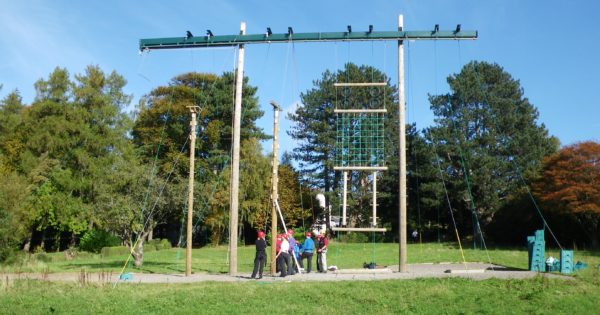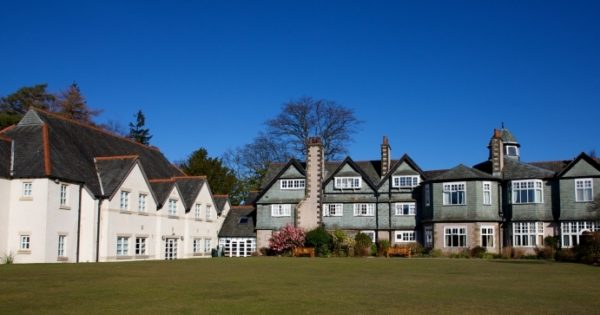1. How long have you worked at Derwent Hill?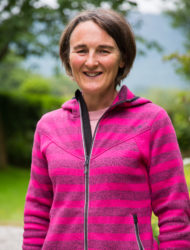
I have been an Outdoor Education Tutor at Derwent Hill for over seven years. It’s the longest time I have spent in any one organisation, and I love it! Prior to this job, I was an instructor working for Dundee City Council.
2. What’s the best thing about your job?
The children! I love to watch them grow in confidence during their stay. Many of them say it is the best week of their lives. Teachers tell us that the results are lasting back in the classroom, with children showing a sustained increase in confidence, resilience and independence. I like to see them as seeds, growing into trees.
3. What’s a typical working week like?
Of course we work weekends too, but here’s a typical week working with a primary school on an Explore course in the Education Centre.
We start on Monday at 9.00 am with a full staff meeting. A school group usually arrives just before lunchtime, so the morning is spent preparing for the course – checking all the documents have arrived and ensuring resources are ready, including weather checks. We have an outline programme to work with, but we are in the English Lake District, so we have to be prepared to change it! All tutors have an area of responsibility, on top of their tutoring, and I am responsible for clothing so I might get time to check stock and order new items.
Just before lunch, we meet the school staff and pupils and help them get settled in, including having a nice welcome lunch together. In the afternoon we might walk up a local small hill like Latrigg. This is a nice starting point; it burns off energy and we get a great view from the top. I use this to gauge the group, to get to know them, what they want and what they might be capable of. Our Mondays usually finish at around 4.30 pm, assuming everything goes according to plan!
On Tuesday we start with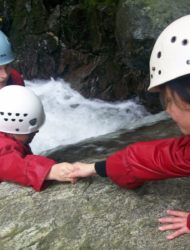 a tutor meeting at 8.50 am followed by a meeting with visiting staff – this is the pattern for the rest of the week. We will then set out on activities such as gorge scrambling at Honister Ghyll. The emphasis is on working as a group – helping each other, taking turns as leader, choosing the route, making decisions, looking out for others in the group and getting WET! There are waterfalls to climb, tunnels to crawl through and pools to jump in. It’s confidence building with FUN!
a tutor meeting at 8.50 am followed by a meeting with visiting staff – this is the pattern for the rest of the week. We will then set out on activities such as gorge scrambling at Honister Ghyll. The emphasis is on working as a group – helping each other, taking turns as leader, choosing the route, making decisions, looking out for others in the group and getting WET! There are waterfalls to climb, tunnels to crawl through and pools to jump in. It’s confidence building with FUN!
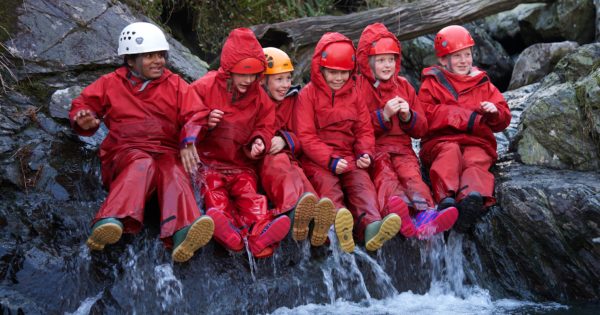
Then it’s back to Derwent Hill to get changed and have lunch.
In the afternoon we might go on the legendary death swing!!! This is what our students fear the most, but bizarrely, look forward to the most! The team breaks into three, each managing a rope or assisting down from the swing. Ultimately the group is empowered with running the activity and I am simply there to make sure it is done safely.
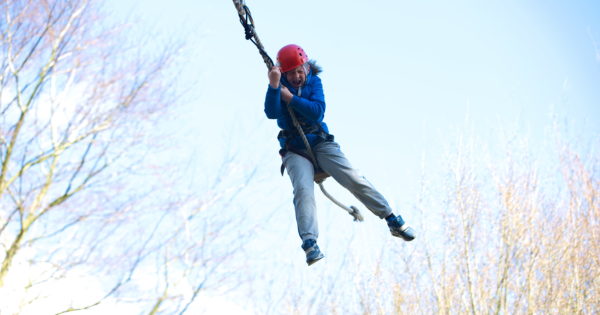
On Wednesday we might do an all-day mountain journey up Catbells, getting dropped off at Skelgill and scrambling/easy climbing up North Ridge. The views at the top are fantastic, so that’s where we stop for lunch and where we can look at the valleys and talk about geological features. We head down the south end into woods at Brandelhow and catch the boat back to Nicol End where we might get an ice cream and stroll back to Derwent Hill for tea.
On Thursday morning we might go canoeing on Derwent Water. Depending on the weather, particularly the wind, and the experience of the group, we set out in single boats or rafted canoes. We head out on a journey to Lingholm Islands, playing games along the way to improve balance, co-ordination and confidence – and because it’s great FUN!
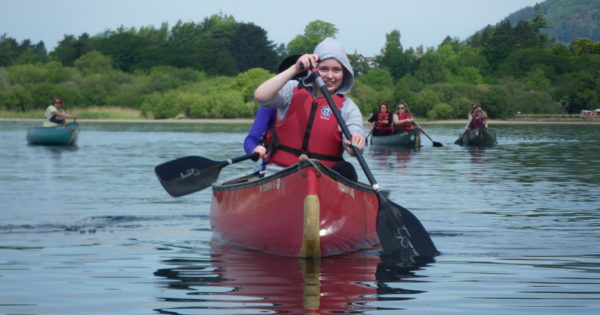
In the afternoon we might go rock climbing or tackle the High Challenge in the grounds of Derwent Hill. This develops trust and supports working in small teams, belaying safely and looking after each other. We see how high we can climb and continue to build confidence in ourselves and others (who might be holding on to our ropes!).
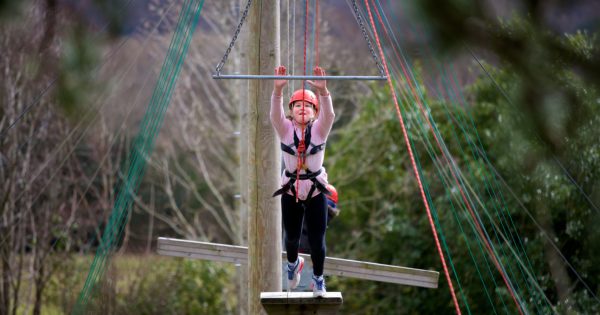
On Friday morning we might go orienteering in the grounds.
After lunch we wave the group off, with hugs and sometimes tears!
The afternoon is spent completing paperwork and tidying up and, if I’m working the weekend, preparing for the next group!
4. What’s the most exciting thing you have done?
Apart from all the wonderful things I get to do at Derwent Hill – it’s a difficult choice!
I think I would choose the solo mountain bike trip I undertook from the east coast of Scotland (St Cyrus) to the west coast (Ardnamurchan point). It took me seven days – just me, my bike and my tent. I pre plotted the route using GPS, and posted dehydrated food parcels along the way so I had to get to where I had planned!
It was the first time I had ever done anything like this on my own. The uncertainty of what may happen appealed to me – what the terrain would be like, would I be able to ride my bike, or would I be pushing it through bog and heather? The areas I passed through, especially as I travelled further west, were sparsely populated with no mobile phone reception. This was an attraction, something that I had sought out. If I fell off would I ever be found?
Relying on myself and pushing my own boundaries, both physically and mentally, against the unknown was key. I soon got into a routine regardless of the weather and what ever lay ahead! It reminded me of how it must feel for the participants on our courses at Derwent Hill. I was bowled over by the support of the few people that I did meet along the way. I took with me a poem by James Elroy Flecker:
I lived a full life and one that was my own choice
“Go as a pilgrim and seek out danger
far from the comfort
and the well lit avenues of life.
Pit your every soul against the unknown
and seek stimulation in the comfort of the brave.
Experience cold, hunger, heat and thirst
and survive to see
another challenge
and another dawn.
Only then will you be at peace
with yourself
and be able to know and to say;
“I look down the farthest side of the mountain,
fulfilled and understanding all,
and truly content that
I lived a full life and one
that was my own choice”
– James Elroy Flecker from the poem play ‘Hassan’
5. What’s next for you?
Back in September 2015, I took the plunge and changed my work pattern to part-time to enable me to start an MSc in Outdoor Education at Moray House, Edinburgh University, with the aim of completing by August 2019. To date, I have completed six of the seven modules for the Post Graduate Diploma and returned to Derwent Hill as a full-time tutor in April this year. I will be back in Edinburgh for the final module this December, and assuming I can find an area of research I can engage in, will start the dissertation next summer.
Studying towards the diploma has been thought provoking and powerful, leaving me questioning much of what I do both professionally and personally. The variety of the modules has been a strength of the course, and I feel I have gained most from those which took us away from the classroom and out into the Edinburgh countryside and beyond. A key thread has been the interconnectedness of man and landscape. This relationship came into being during our first module ‘interpreting the landscape’ and set the scene for the six proceeding modules. An inspirational week of ecology and field studies was spent on the Isle of Rum at the end of my first year, and for me, this cemented these principles and I left humbled. Many of these topics were new, but the learning and the experiences I have shared with others have made me recognise the importance of connecting what we do with the young people at Derwent Hill with the curriculum, and their world, to help them become good citizens. Learning should be ‘hands on’ with the outcomes not always certain but meaningful. The educationalist Patrick Geddes mantra of ‘Heart, Hands, and Head’ resonates with me throughout.
Personal and social development, experiential education, outdoor environmental education, social theory of outdoor education and sources of knowledge complete the academic requirements. Practically, I’ve taken part in a canoe trip down the River Spey where we made links to river use, land management and landscape and a sea kayaking trip off the west coast of Scotland. Due to my professional qualifications, I was exempt from all mountaineering and rock climbing practicals.
The exciting part for me now, is to continue to broaden the depth of my knowledge and to practically apply this theory to outdoor education at Derwent Hill. This challenge keeps me alert and knowing that all who spend time at the centre will leave with lifelong memories – that’s unique!
Derwent Hill is in a world class location – click on the image below to see for yourself :
